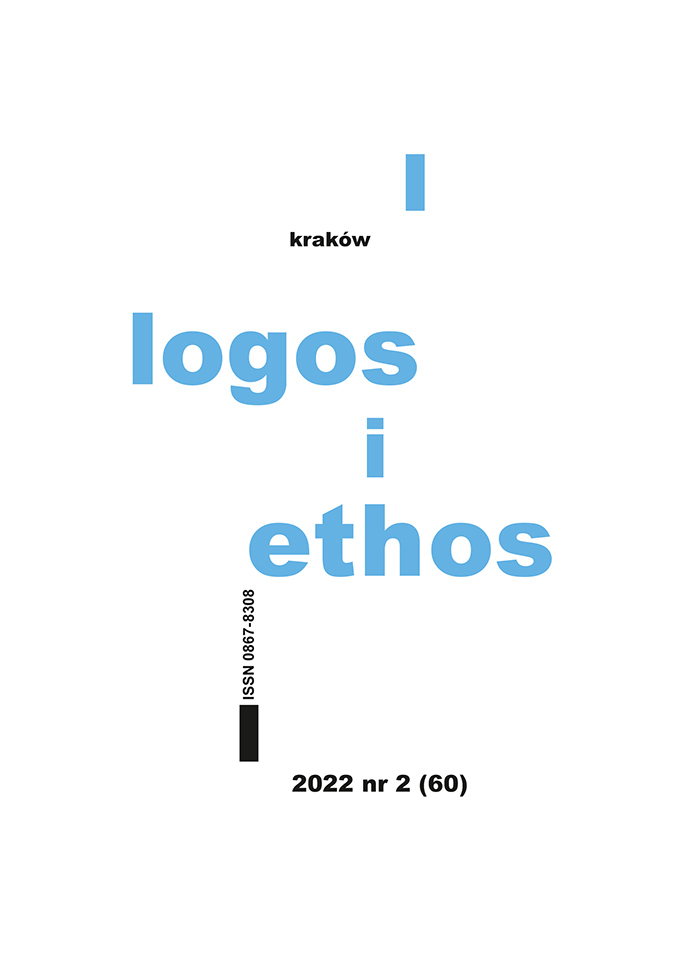Założenia i tezy fenomenologii prawa Carlosa Cossio
DOI:
https://doi.org/10.15633/lie.60205Słowa kluczowe:
prawo, fenomenologia, zachowanie, egologia, intersubiektywnośćAbstrakt
Carlos Cossio, argentyński filozof prawa rozwijał swoje koncepcje od lat trzydziestych XX wieku, będąc wykładowcą akademickim i aktywnie uczestnicząc w życiu społecznym. W założeniach, tezach i postulatach jego prawnicza teoria zajmuje się społeczną rolą prawa, przede wszystkim rolą sędziów i instytucji sądowych. W swojej fenomenologii prawa Cossio odwołuje się przede wszystkim do tez fenomenologicznych Edmunda Husserla, jak również do etyki Immanuela Kanta oraz do filozofii egzystencji – do koncepcji Miguela de Unamuno i Martina Heideggera. Cossio systematycznie podkreśla pierwszoosobową, czyli egologiczną i indywidualistyczną perspektywę wiedzy, decyzji i działań. Taka perspektywa pozwala nam rozpoznawać prawo jako działające wobec i dla ludzkich jednostek, z uwzględnieniem ich specyficznej sytuacji biograficznej i ich zachowania – prawo jest określane i nabiera ważności w konkretnym społecznym świecie. Równocześnie pozycja podmiotu w świecie jest określana przez intersubiektywny kontekst kultury, tożsamy ze specyficznie ludzkim „światem życia”. Cossio kieruje naszą uwagę ku tezom antropologicznym (antropologiczna potrzeba reguł i normatywności) oraz ku językowi i innym systemom znakowym, uznawanym za specyficznie ludzkie wytwory i nadające znaczenie „przedmiotom kultury” (Wilhelm Dilthey), czyli ku intersubiektywności (Lebenswelt) szeroko pojmowanej jako symboliczna, semiotyczna i semantyczna sfera.
Bibliografia
Almeida Diniz A. J., The Egological Theory. An Approach to the Legal Thought of Carlos Cossio (a thesis submitted to the Departement of Law), Tulane University, 1965.
Ben-Dor O., Thinking about Law: In Silence with Heidegger, London–New York 2007.
Callister P. D., Law and Heidegger’s Question Concerning Technology: A Prolegomena to Future Law Librarianship, „Law Library Journal” 99 (2007) nr 2, s. 285–305.
Cossio C., Jurisprudence and the Sociology of Law, 1, „Columbia Law Review” 52 (1952) nr 3, s. 356–381.
Cossio C., Jurisprudence and the Sociology of Law, 2, „Columbia Law Review” 52 (1952) nr 4, s. 479–501.
Cossio C., La polemica anti-egológica (Respuesta al profesor Hans Kelsen), „La Ley” (1954) nr 76, s. 740–760.
Cossio C., La teoría egológica del derecho. Su problema y sus problemas, Buenos Aires 1963.
Cossio C., La teoría egológica del derecho y el concepto jurídico de libertad, Buenos Aires 1944.
Cossio C., Panorama de la teoría egológica del derecho, Buenos Aires 1949.
Cossio C., Phenomenology of the Decision, w: Latin-American Legal Philosophy, ed. L. Recaséns Siches, transl. G. Ireland, Cambridge Mass. 1948, s. 343–400.
Cossio C., Teoría de la verdad jurídica, Buenos Aires 1954.
Cossio C., Teoría egológica y teoría pura (Balance provisional de la visita de Kelsen a la Argentina), „Mundo Hispánico” (1949) nr 48, s. 185–249.
Dimitrov B., Cultural Phenomenology of Law and Topological Approach to Law. A Series of papers presenting the essentials of Topological Approach to Law (2012), https://www.academia.edu/1428060/Cultural_Phenomenology_of_Law (21.07.2022).
Duxbury N., Carlos Cossio and Egological Legal Philosophy, „Ratio Juris” 2 (1989) nr 3, s. 274–282.
Goździalski K., Phenomenological Concept of Law from the Perspective of Carlos Cossio, „Folia Iuridica (Acta Universitatis Lodziensis)” (2020) nr 90, s. 119–139.
Goździalski K., Prawo jako przedmiot kulturowy w filozofii prawa Carlosa Cossio, „Archiwum Filozofii Prawa i Filozofii Społecznej” (2016) nr 1, s. 12–30.
Heidegger M., Bycie i czas, tłum. B. Baran, Warszawa 1994.
Husserl E., Badania logiczne, t. 1: Prolegomena do czystej logiki, tłum. J. Sidorek, Toruń 1996.
Kelsen H., Czysta teoria prawa, red. A. Bosiacki, tłum. R. Szubert, Warszawa 2014.
Kelsen H., Teoría pura del derecho y teoría egológica (Respuesta a Carlos Cossio: Teoría egológica y teoría pura del derecho, balance provisional de la visita de Kelsen a la Argentina), transl. L. Legaz Lacambra, „Revista de Estudios Políticos” (1953) nr 71, s. 3–39.
Kunz J. L., Introduction, w: Latin-American Legal Philosophy, ed. L. Recaséns Siches, Cambridge Mass. 1948, s. XIX–XXXVII.
Leksykon współczesnej teorii i filozofii prawa, red. J. Zajadło, Warszawa 2017.
Normatywizm Hansa Kelsena a współczesna nauka prawa, red. A. Bosiacki, Warszawa 2019.
Recaséns Siches L., Axiología jurídica: Bases para la estimativa jurídica, Havana 1939.
Recaséns Siches L., Estudios de Filosofía del Derecho, Barcelona 1936.
Recaséns Siches L., Vida humana, sociedad y derecho. Fundamentación de la Filosofía del Derecho, México 1939.
Reinach A., Concerning Phenomenology, transl. D. A. Willard, „Pacific Philosophical Quarterly” 50 (1969) nr 2, s. 194–221.
Reinach A., Zur Phänomenologie des Rechts. Die apriorischen Grundlagen des bürgerlichen Rechts, Münich 1953, polski przekład: Reinach A., Aprioryczne podstawy prawa cywilnego, przeł. T. Bekrycht, Kraków 2009.
Schalow F., Heidegger, the Law of Being, and Animal Protection Laws, „Ethics and the Environment” 20 (2015) nr 2, s. 61–82.
Serrano Pirela A. E., Cuatro notas introductorías a la fenomenología jurídica de Carlos Cossio, „Anuario Filosófico” 3 (1970) nr 1, s. 319–326.
Serrano Pirela A. E., Prolegómenos para el estudio de la teoría egológica, „Anuario Filosófico” 2 (1969) nr 1, s. 335–353.
Vichot R., On some Contributions of Existential Phenomenology to Sociology of Law: Formalism and Historicism, w: Foundations of Morality, Human Rights, and the Human Sciences. Phenomenology in a Foundational Dialogue with the Human Sciences, eds. A.-T. Tymieniecka, C. O. Schrag, Dordrecht 1983, s. 539–551 (Analecta Husserliana, 15).
Zahavi D., Applied phenomenology: why it is safe to ignore the epoché, „Continental Philosophy Review” (2021) nr 54, s. 259–273.
Pobrania
Opublikowane
Numer
Dział
Licencja

Utwór dostępny jest na licencji Creative Commons Uznanie autorstwa 4.0 Międzynarodowe.
Autorzy publikujący w czasopiśmie udzielają jego wydawcy zgody o następującej treści:
- Autor zachowuje autorskie prawa majątkowe do utworu, a jednocześnie udziela wydawcy czasopisma zgody na jego pierwszą publikację w wersji drukowanej i wersji online na licencji Creative Commons Uznanie autorstwa 4.0 Międzynarodowe oraz zgody na wykonywanie opracowań, w tym przekładów.
- Autor ma możliwość udzielania zgody niewyłącznej na opublikowanie utworu w wersji, która ukazała się w czasopiśmie (np. zamieszczenia go w repozytorium instytucjonalnym lub opublikowania w książce), wraz z informacją o jego pierwszej publikacji w czasopiśmie.
- Autor może umieścić swój utwór online (np. w repozytorium instytucjonalnym lub na swojej stronie internetowej) jeszcze przed zgłoszeniem utworu do czasopisma.

